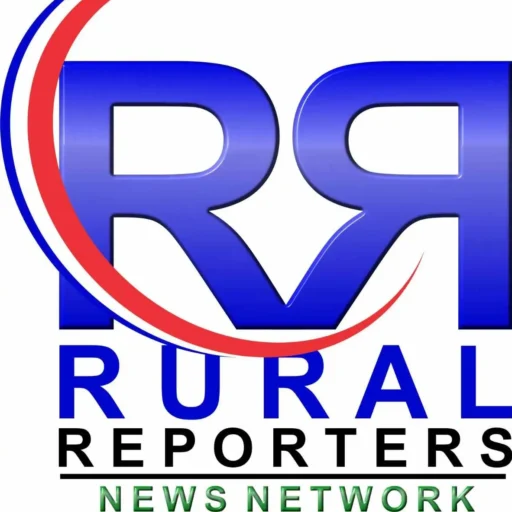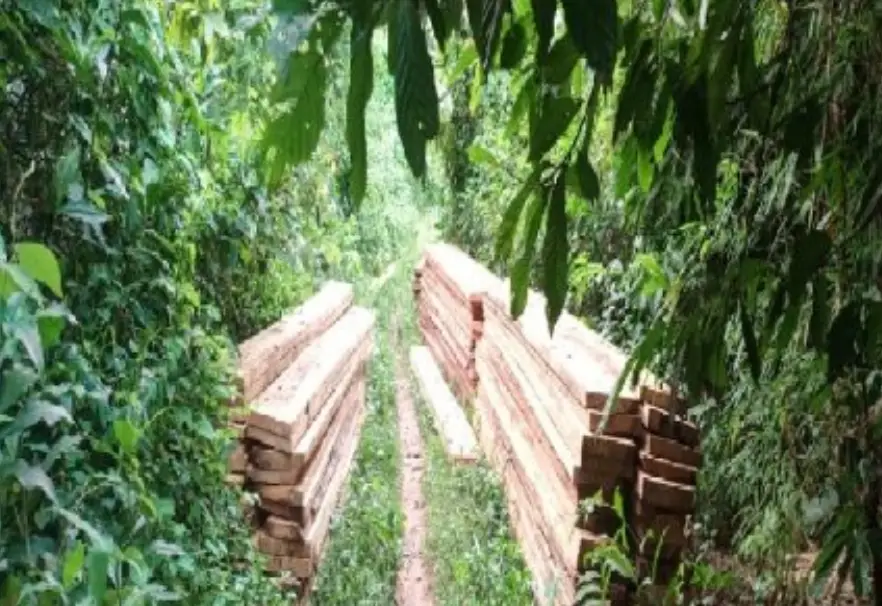Forest and biodiversity are the risks of depletion or extinction due to unregulated cross border pit-sawing, hunting and mining around the Liberian border town of Vahun, Lofa County, a visit by the Liberia Forest Media Watch (LFMW) in Vahun has ascertained. The illegal act is happening in all major towns in Vahun, mainly Folima, Levuma and Memolahun, where LFMW’s reporter visited. Three Sierra Leonean Nationals, Mohammed Nyallah (Tobe), Bassiru and Jasper are suspects of the unauthorized timber trade. Hunting and trading of bushmeat and mining are also rampant in Vahun.
There are concerns from environmentalists that Liberian forests risk depletion if care is not taken to tackle the growing wave of forest illegalities. In its recent report on Liberia, Forest Trends described the harvesting of “Kpokolo” (new dimension of timbers) as a threat to Liberia’s forest.
Amid these alarms, happenings on the ground suggest forest illegalities is nowhere near halt. The latest corridor for such an illegal act is Vahun. Cut off from the rest of Liberia due to bad road, Sierrea Leonean nationals, aided and abetted by influential residents of Vahun are engaged in the illegal extraction of timbers, bushmeat and mining and taking them on the Sierra Leonean markets against the Liberian forestry law.
Part two section 3 (b) of the Forestry Development Authority 2019 Revised Regulation on Chainsaw Milling says timber harvested under a Chainsaw Milling Permit shall be used only on the domestic market, and are not eligible for export.
Part three section 5 (a) of the same Chainsaw Milling regulation says no person shall undertake Chainsaw Milling unless in possession of a Chainsaw Milling Permit duly issued to him/her/it or his/her /its principal by the Authority in keeping with the provisions of this Regulation.
Despite the regulation, Mohammed Nyallah (Tobe), Bassiru and Jasper, who are operating without permits are also exporting the timbers outside of Liberia in total disregard to the forestry law.
Liberia’s formal forest sector accounts for 10% country’s GDP and employs 39,880 full-time equivalent workers, of whom 35% are women (2020 Liberia Forest Resources Assessment). The report also says the informal sector such as chainsaw milling provides up to 24,000 regular jobs and contributes each year, up to $41 million, about 3 to 4% of GDP. The charcoal industry employs up to 28,000 people on a regular basis. Whereas the non-Timber Forest Products such as fruits, honey, meat, nuts, and plants are equally vital to the livelihoods of most of the rural population.
But these benefits are likely to be derailed due to the rampant forest illegalities taking place by foreign nationals from Sierra Leone, Guinea and Ivory Coast who are benefiting at the disadvantage of community members within Liberia. Concerned citizens of Vahun are worried about the alarming rate of the illicit forest activities, and are demanding an immediate intervention from national stakeholders.
But putting an end to the situation in Vahun is a little more difficult because of cross border political interests and family ties. Aside from being cut off from the rest of Liberia due to bad road, no one also wants to be seen as obstacle to the livelihoods and political interests of other family members from both countries. The challenge now is who will muster the courage to galvanize stakeholders’ effort to end the menace against the Liberian forest by Sierra Leonean nationals, some of whom are strategic political interests for Liberian political officials that depend on cross border voters’ trucking to win election or retain power.
The committee set up to monitor and supervise the pit-sawing activities is accused of doing less to ensure community members get their benefits. The Chair of the committee, Fodie Jangai is accused of not delivering funds he receives on behalf of the community. Citizens, mainly the youth, expressed their disappointment in the officials for failing to put stop to the destruction of their forest.
When contacted, the Chairman of the Vahun Development Committee, Fofie Lalugbah, claimed to have no knowledge of the illegal chainsaw activities. As a committee responsible to drive development in Vahun District, Lalugbah said he has not seen any tangible development or financial contribution from the chainsaw operations
Vahun District Commissioner, Paramount Chief, and the Chair of the local committee on timbers refused to make comment when queried by LFMW. The driver of one of the trucks transporting the timbers to Sierra Leone also declined to comment, noting, he was not answerable to the media.
But day after the departure of LFMW’s reporter, the Commissioner of Vahun District, Sedikie M. Duckly, who earlier refused to speak on the matter, is reported to have organized a stakeholders’ meeting, where participants of the meeting said their new Commissioner announced a moratorium on the chainsaw milling activities, mining and cross border farming.
Responding to the unauthorized chainsaw milling operations, the President of the Liberia Chainsaw Dealers Union, Julius Kamara said he was not aware of anyone conducting pit-sawing activities in Vahun. He, however, expressed dissatisfaction in the illegal act and distanced his union from it. The Liberia Chainsaw Dealers Union is responsible to regulate chainsaw milling activities across the country.
Forestry Development Authority’s Regional Coordinator for Region 2, John Teah also stated that he is not aware of any chainsaw operation taking place in Vahun. Teah could not confirm nor deny reports of the timbers being exported out of Liberia and sold on foreign markets against the Liberian law on chainsaw milling.



